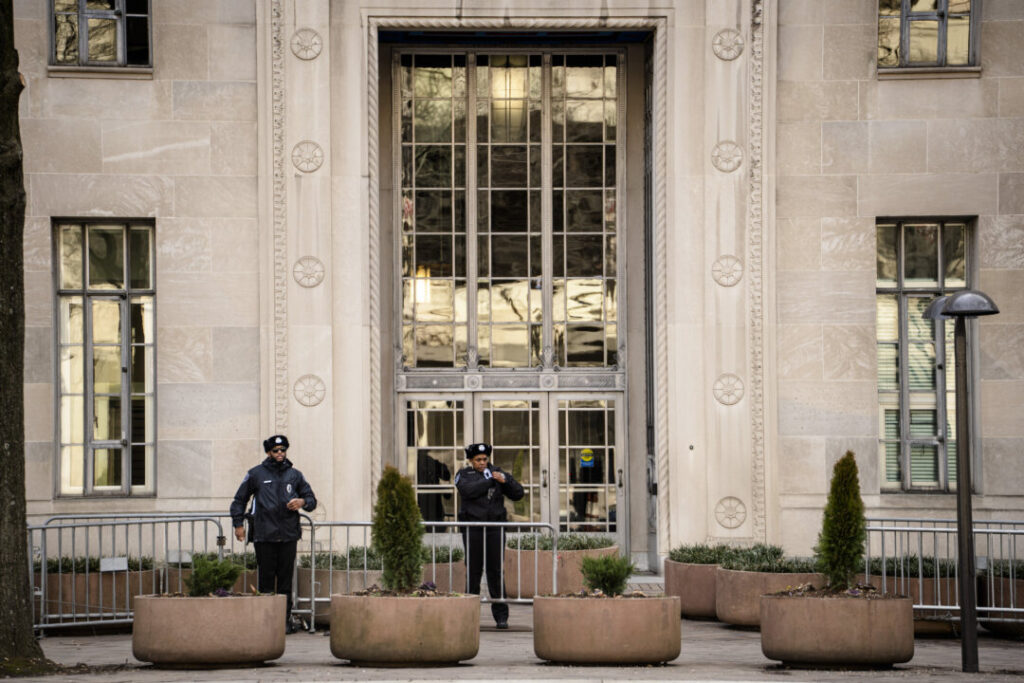The Court of Appeals has given Abrego Garcia’s attorneys to respond to government submissions until Sunday afternoon.
A federal judge on April 6 denied the Trump administration’s allegation to maintain an April 4 order that directs the return of illegal immigrants deported to Salvador prisons. The White House described Kilmer Abrego Garcia’s deportation as “administrative error.”
“As the defendant admits, they had no legal authority to arrest him, no legitimacy to restrain him, no basis for sending him to El Salvador. “Confessing a serious mistake, the defendant now argues that this court lacks the power to listen to this case and that it is not capable of ordering Abrego Garcia’s return.”
Authorities arrested Abrego Garcia, a 29-year-old Maryland Salvador national, in March and deported him to El Salvador, but a 2019 ruling from an immigration judge protected him from the country from exile.
Homeland Security Investigators have accused him of being the leader of the infamous MS-13 Transnational Gang, recently designated as a terrorist organization. His lawyers argued there was no evidence of any ties with the gang, and Sinis said the federal government had not provided evidence.
“The defendant alleges in evidence – Abrego Garcia was a member of the MS-13 and later housed him within the main rival gang, Barrio 18,” Xinis wrote. “It goes without saying that Barrio 18 is the very gangster whose long-standing persecution of Abrego Garcia has led to withholding from its removal to El Salvador.”
According to lawyers for Abrego Garcia, the evidence used to link him to MS-13 was an allegation from a confidential informant at the Department of Homeland Security.
On April 5, the Department of Justice (DOJ) called on the Fourth U.S. Circuit to suspend Sinis’ ruling, claiming that he had no authority to order the Trump administration to return Abrego Garcia, particularly as he is no longer in US custody.
“This court should thus restore constitutional balances and amend the attempt to seize the administrative division of the district court. The following order represents to the highest degree “unfair judicial interference in the implementation of foreign policy,” the DOJ wrote.
“Forcing foreign sovereigns to send foreign terrorists back within three days is an injunction. It’s not a way of running a government, and there’s no basis in American law.”
The Court of Appeals handed over to Abrego Garcia’s lawyers to respond to government submissions until the afternoon of April 6th.
On April 4, DOJ lawyer Erez Luvveni said Abrego Garcia should not be deported and under any authority in Maryland he could not communicate Xinis.
Rubeni was then taken leave by the Justice Department, Attorney General Pam Bondy confirmed.
“At my direction, all Justice Department lawyers must advocate diligently on behalf of the United States,” Bondy said in a statement. “A lawyer who fails to follow these instructions will face consequences.”
On April 4, Sinis ruled that there was no legal justification to bind Abrego Garcia and that there was no legal basis for deportation to El Salvador.
The Homeland Security Investigation has seen Abrego Garcia as the MS-13 leader, and the White House has repeated its conclusions following the April 4 hearing. His lawyers argue that there is no evidence of a relationship with the gang.
His lawyer said Abrego Garcia had permission to work legally in the United States. Abrego Garcia’s wife is a US citizen.
Abrego Garcia left El Salvador around 2011 and illegally entered the United States.
After immigration officers detained him in 2019, an administrative judge said that year determined Abrego Garcia was a member of MS-13 and rejected a request for release, poses a risk to the community. He was deported late in 2019, but was also granted protection against removal in El Salvador as an immigration judge determined that Abrego Garcia was likely to face danger if sent back to the country.
During the court hearing on April 4th, Xinis said the 2019 immigration judge did not determine that Abrego-Garcia is a member of MS-13.
Justice Department lawyers said they have no control over Abrego Garcia and have no authority to mediate his return.
“The defendant seized Abrego Garcia without legal authority. He detained him in three separate national detention centres without legal basis. He did not present him to an immigration judge or officer.
“On the basis of the foregoing, the court retains jurisdiction to hear this case. Abrego Garcia has also demonstrated that he is entitled to the injunctive relief sought.”
Sam Dorman and the Associated Press contributed to this report.



